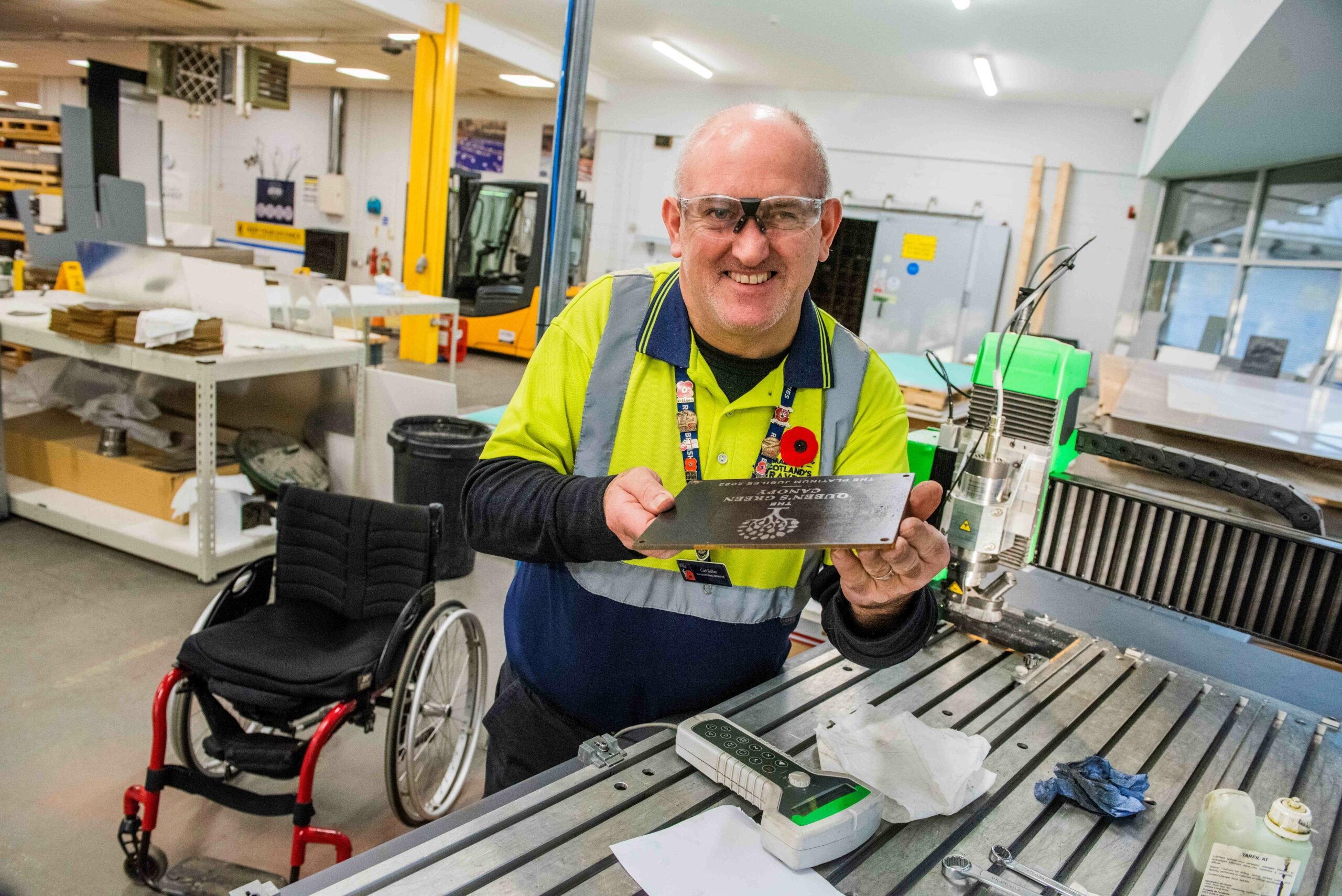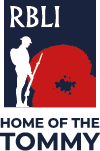SBMC receives grant from The Royal Navy and Royal Marines Charity and Greenwich Hospital

SBMC (Scotland’s Bravest Manufacturing Company) has received a grant of £20,000 from The Royal Navy and Royal Marines Charity and Greenwich Hospital. The grant is to contribute towards the salary of an existing Royal Navy veteran who is employed at the social enterprise in Renfrewshire. The funding will also enable SBMC to continue to provide personalised Welfare & Development support to the Royal Navy and Royal Marine veterans they employ and to reach more Royal Navy and Royal Marine veterans.
A social enterprise, SBMC is a division of the veterans’ charity RBLI. SBMC’s ethos is to provide employment, volunteering and development opportunities for Armed Forces veterans and people with disabilities in Scotland who may need support adjusting to civilian life. SBMC’s staff manufacture signs for a range of industries that include highways, transport, and the commercial sector. They also complete bespoke engineering projects. In April this year SBMC was one of the first organisations to win the coveted King’s Award for Enterprise.
Carl Baller, a Royal Navy veteran who works in SBMC’s Signs department as a Manufacturing Operative, and whose salary will be partially covered by the grant said, “I would like to thank The Royal Navy and Royal Marines Charity and Greenwich Hospital for contributing towards my salary as working at SBMC has greatly improved my life. It’s like being back in the Forces as we can relate to each other. Since working at SBMC I can provide for my family so it’s not all down to my wife. Our family life is better because I am better. I have a routine and structure to my day and am part of a team again.” Prior to joining SBMC, Carl was working in a call centre for a debt collection agency and he would be physically sick before going to work. He describes SBMC as a second life.
The £20,000 will further support volunteering costs, and overhead costs of employing Royal Navy and Royal Marine veterans as the cost of living crisis has seen these increase drastically, limiting the number of new beneficiaries that SBMC can support.
Jonathan Ball, Director of Grants at Greenwich Hospital said, “Greenwich Hospital funding supports serving and former Royal Navy and Royal Marines personnel and their families across a whole range of needs. Ensuring vulnerable veterans make the most of their skills in sustainable employment matters as it enables independence, dignity and a sense of normality. We are therefore delighted that, with RBLI’s support, Carl has secured a new role at SBMC and will receive ongoing support to help him settle into civilian life.”
As SBMC tackles unemployment and isolation for vulnerable veterans and their families, the £20,000 grant will also help to fund the Welfare & Development role held by Robert Lappin, a veteran Army Officer. Robert has specialist experience supporting veterans suffering from trauma and psychological challenges, including PTSD and those who have suffered amputations from conflict.
Speaking of the impact of the grant, Robert Lappin, Assistant Director of Welfare & Development at SBMC said, “This is a significant boost to how we can help people. The employment we provide at SBMC is manufacturing and bespoke engineering, which is very attractive to veterans. A major part of my role is to provide personalised welfare support for each veteran who works here to help them identify, address, and overcome barriers to employment and social isolation. This type of support is not provided in a typical workplace.
“Almost 70% of staff at SBMC have reported a history of mental distress. We see daily how life changing that support, in conjunction with the training, and qualifications that we offer is. Working at SBMC helps veterans like Carl, and people with disabilities, to regain their confidence as they feel like useful members of society again. It also helps them to overcome social isolation and loneliness and improves their quality of life.”
An example of some of the work completed by SBMC in the last year includes 1,557 no-smoking for the Scottish Government/NHS Scotland. The signs were manufactured, delivered, and installed on every NHS Scotland hospital and clinic site in Scotland, this included the mainland, Hebrides, and the Northern Isles.
